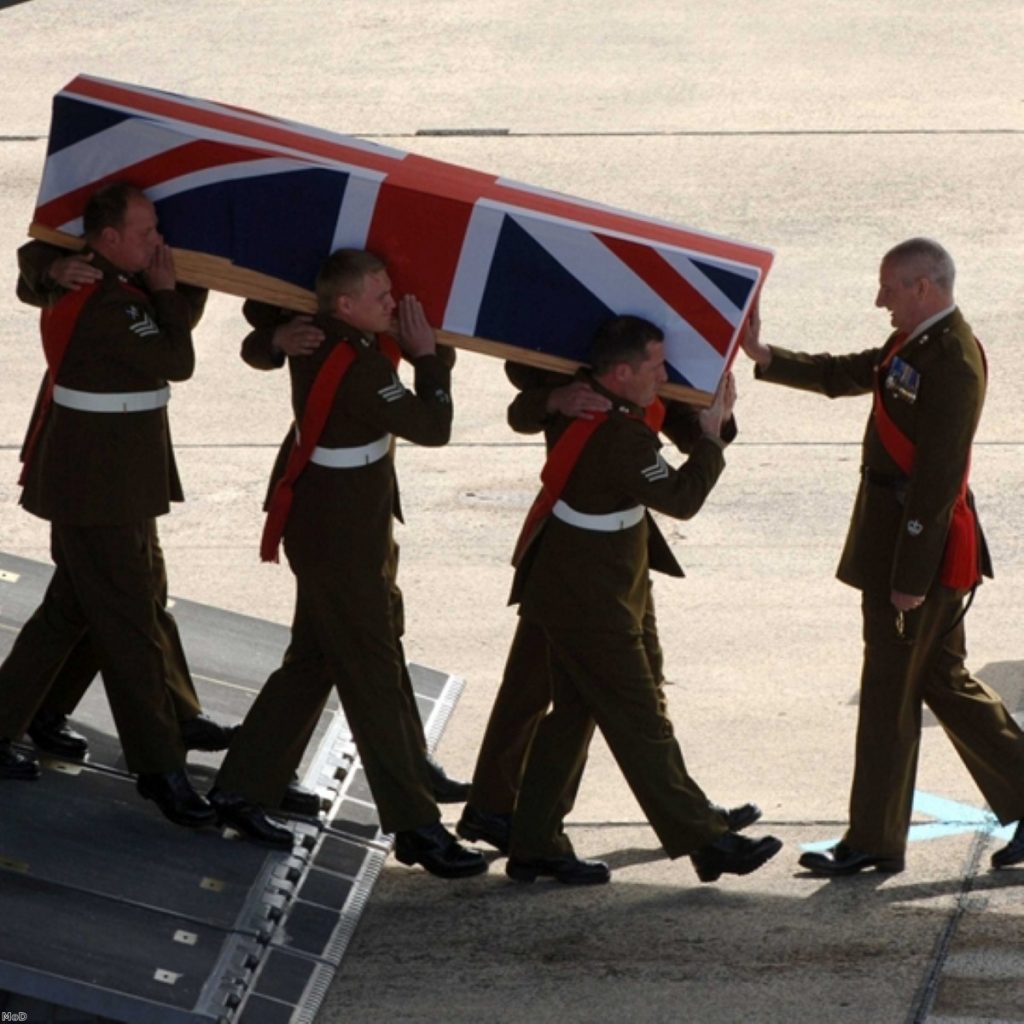Leave us alone over soldiers’ deaths, ex-military chiefs tell coroners
Coroners should avoid pronouncing judgement on the decisions which lead to deaths in combat situations, former military chiefs have said.
The outspoken comments from the ex-leaders of Britain's armed forces will generate intense controversy amid a period of reform for the coronial system, which is being led by judge Peter Thornton in his role as the UK's first chief coroner.
Bereaved service personnel families are often frustrated by the lack of answers about the circumstances surrounding the death of a loved one.
Thornton hinted in his first speech in the job last October he was prepared to consider creating specialist coroners focusing on military deaths as a means of improving the service.


But the potential intrusion of coroners into the behaviour of soldiers on the ground was clearly opposed by senior ex-military figures in the Lords this morning.
"The assumption that the battlefield is just some industrial site several thousand miles away where is someone is killed there is always someone to blame – well, you could start with the enemy," General Sir Mike Jackson, who led the Army from 2003 until 2006, told peers on the Lords' constitution committee.
Field Marshal Charles Guthrie, who served as chief of the defence staff from 1997 to 2001, added that commanders' decisions could become inhibited by the fear of rebuke from a coroner back in Britain.
"If you are so worried about having a lawyer following you around on the battlefield, you won't do anything," he said.
Air Chief Marshal Jock Stirrup called for parliament to look at the issue more closely, suggesting MPs and peers have "an important role to play" in dealing with the issue.
Their comments raised eyebrows from Lord Goldsmith, the former attorney-general, who sought clarity over whether all military deaths should be exempt from coroners' scrutiny.
Jackson said he made the distinction between "the hot blood of the firefight" and other situations.
"I feel very strongly that members of the British armed forces must at all times behave in accordance with the law, and if they do not due process must follow," he said.
Guthrie added: "Criminal cases should be treated like criminal cases."
But Jackson suggested there is a danger that coroners could become judgmental on excessively detailed decisions of commanders, giving the hypothetical example of a corporal being castigated for turning left at a road junction and the coroner insisting they should have turned right.
Jackson added: "That is the road to absurdity."









